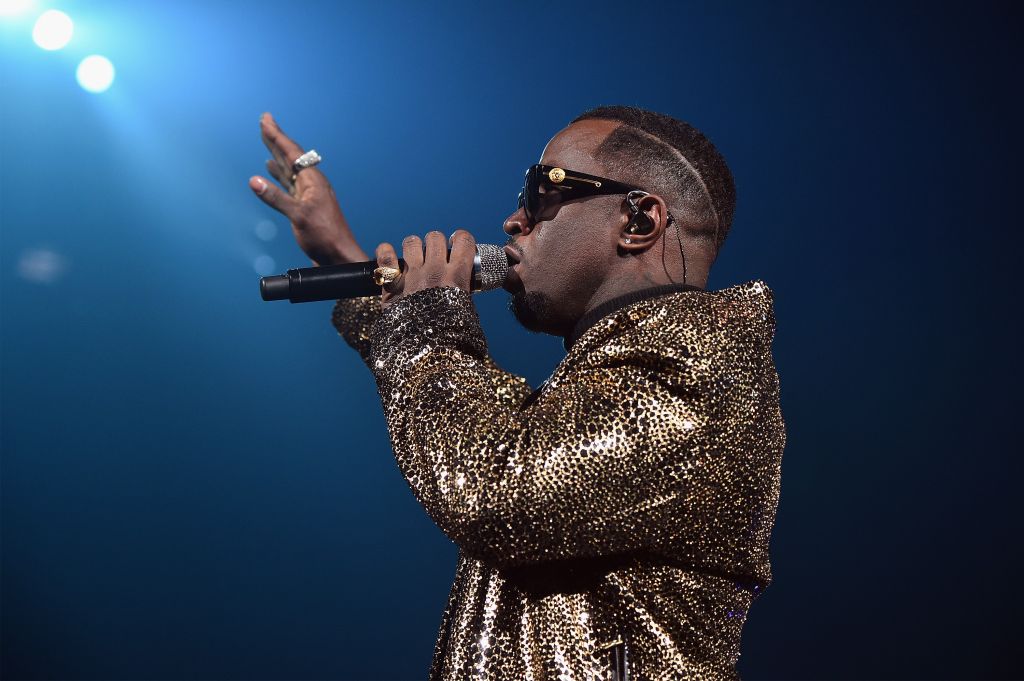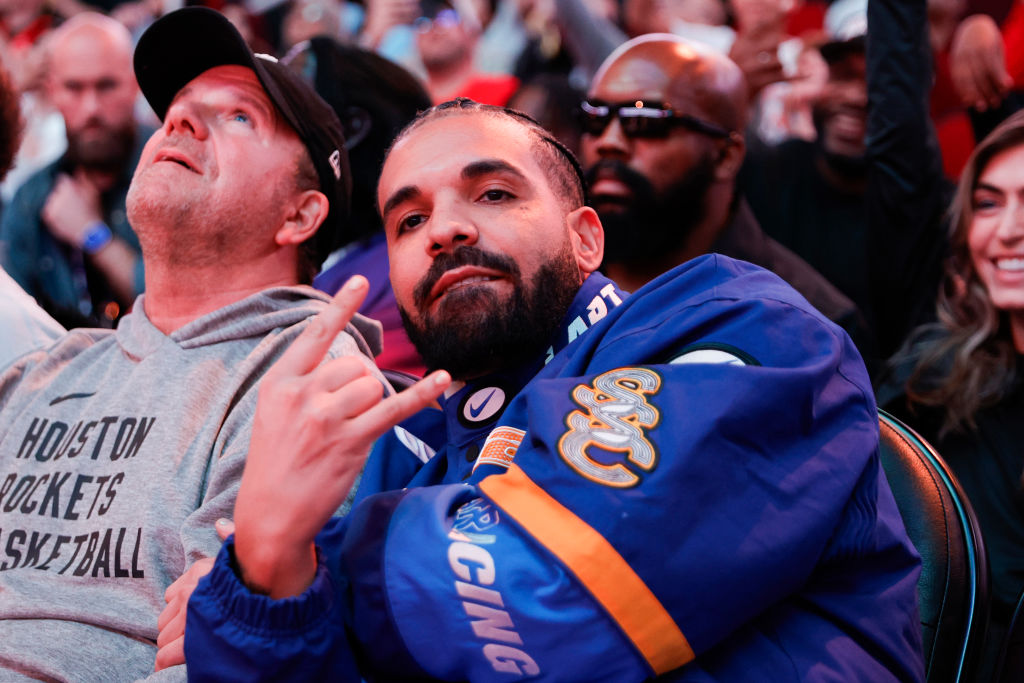
Source: Kevin Mazur / Getty
Diddy would like to be referred to as “Love” now.
A new name and he’s in a quasi-new locale: Los Angeles. He’s got a palace there now in Beverly Hills.
L.A. means things to Love and means everything to us. Our kin on the other side of the country plotted and, out of spite or comeuppance or power, murdered two of the people we collectively love the most. One was their very own Killmonger, Tupac Shakur. The other was New York’s slick lyrical genius, Christopher Wallace.
The GQ cover story is written by John Jeremiah Sullivan. His prose is crisp and authentic. He writes the way the guys I played baseball with on Long Island, N.Y. talk: with a roaring sense of the weight of the American civilization. With his place in it and with Love’s place in it. There is a scene he sets up in the piece where he describes Love in the barber chair propelled aloft while he faces him, his own chair slung close to the floor.
“They placed me directly in front of Love, facing him and maybe 12 feet away, but seated lower—in quite a low chair—whereas his barbershop chair had been pumped up, elevated,” Sullivan wrote. “It was papal, this whole exchange of postures between us. Love made very direct eye contact. I started asking my questions.”
He called it papal but it conjured another image in me: That of a courtroom and a judge. I imagine FKA Diddy high up and robed in black in that barber chair waiting to be asked what will inevitably be questions about Biggie and hip-hop; about power and money and what he did for it. Really, about how he, a Black man from Harlem, carved a place for himself in the foreground of the American imagination. I think it has something to do with those name changes.
Western courts are set up to evoke a sense of powerlessness in defendants. They do not sit with you but above you, adjudicating your life through a codified version of morality. They decide what is acceptable and for whom. It’s what Jay-Z and Love talk about a lot, says the piece. About “Black excellence.” About Black people “gaining economic power.” I struggle to understand what that means in a power structure as complete as this one. But it illustrates where Love is at these days.
“I want to be an authentic, unapologetic warrior for black culture and the culture of the street and how it moves,” says Love to Sullivan in the piece. “My thing is most importantly to change the narrative of the black race. I can’t relate to anything that isn’t about that.”
Changing the narrative is a thing these days. Black Panther changing the narrative of Black superhero movies is something you’ve inevitably already read. It’s set to overtake The Avengers as the highest grossing superhero film of all-time. The real narrative here, though, is how hungry Black people around the world had been for such a film made so lovingly, so unapologetically. Black Twitter has been at it, too. It seems to act as the ego of the Black social media community, pointing out where the wide world excludes us. Lifting us when the news, or cops, or the president tries to diminish us. It is trying to insert us into a cannon where we have been relegated to being ghosts.
So now the millionaire survivors of a tumultuous era want to do that through wealth. “I don’t believe in passiveness,” Love told Sullivan. “At some point, there has to be some kind of fight. I feel like we’ve done a lot of marching. It’s time to start charging.”
He doesn’t mean with a credit card. He means through commerce, the way he and Jay have gained power and respect. I see the pull here. It is seductive because of its intimacy. A Black intimacy he instinctively knows scares the hell out of some people. “This is not about taking away from any other community,” he said. “We’ll still go to Chinatown. We’ll still buy Gucci!” You’ve got to say that, it feels, so the wider system doesn’t gaze down upon you the way Love gazed down at Sullivan. It’s an unconscious tick that shows you where the real power is and who has it. “We’re into psychological warfare,” Love says. “The difference is, we’re not trying to hurt nobody.”
They aren’t, probably. But someone will inevitably be hurt. All decisions have intended and unintended consequences. Like the one Diddy regrets the most: letting B.I.G. convince him to stay in L.A. instead of getting on a plane to London.
“I asked if he talked to a therapist about this stuff,” Sullivan wrote. “‘Nah,’ Love said, “I haven’t dealt with any of that yet. I try to get into it, but…that’s something that just hurts so bad. That’s a time that’s still suppressed.”
We still hurt so bad, too. At the way it changed everything. The vacuum those shots created and how it really couldn’t be filled. And maybe afterward, the way FKA Diddy spiraled out into nightclub shootings and Making The Band is what helped create a guy who “developed a mentor relationship with the world.” A part of me wishes the piece had been about that instead. About the aftermath of losing a twin. About walking around missing your heart. Or, of maybe not caring too much at all. Who knows.
What we do know is Love is still a man obscured. Love still misses his friend.
















